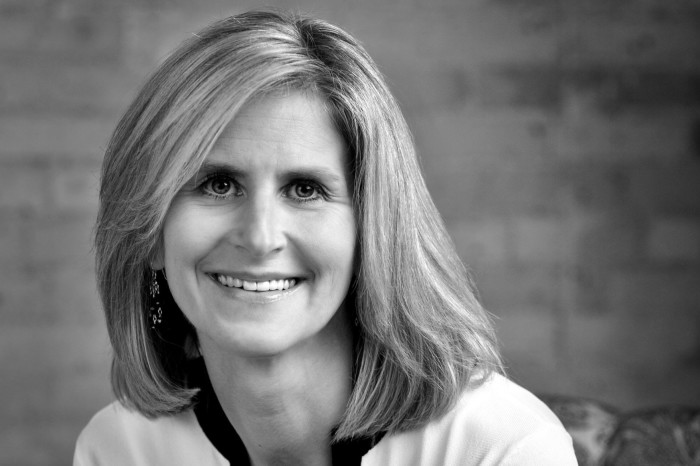
Susan Davis-Ali. Courtesy photo
MEN AND WOMEN SUPPORTING WOMEN
Davis-Ali, who is also is VP of Organizational Transformation for the Anita Borg Institute for Women in Technology, says that to command change, both men and women need to understand the business case for gender diversity and how mixed gender teams work better. “We need women to do the work, but it’s not the place of women alone to change things,” she says.
She agrees that the millennial generation is naturally more ready than ever to propel change on behalf of women, because millennial men are beginning to ask for things that are traditionally considered reserved for female, such a flex timing, which many women need as they start families. “Because that’s something that everyone wants, women won’t be penalized for it anymore,” David-Ali says.
Secondly, she says that while everyone believes that there is meritocracy in business, some men still believe that progress for women is about giving them an unfair advantage. Using the analogy of a “ladies tee” in golf, where female players are given a yard advantage and play the course at its shortest length, Davis-Ali says that programs that help advance women are more like taking away hurdles so everyone runs the same 100-meter dash. “It’s not about advantage, but about taking away unfair disadvantages,” David-Ali says. “It’s not about change premised on the thought that girls are not as good as the boys.”
The third thing, she says, that needs to happen, is for men and women to acknowledge that women’s lives take on more work than men’s lives will. “It’s discouraging when we don’t talk to women in college about it and women think they’re going to be super-everything,” she says. “Instead, we need to demystify the term work-life balance that is handed only to women and not to men. If women enter careers thinking they’ll have it all, they’ll be so disappointed at themselves.”
Davis-Ali says that rather than the term work-life balance, she teaches women about success sanity. Doing so informs them that things will be difficult and complicated, but it’ll be short, and that any program seeking to support women should give them tools to stay in the game.
“I help women embrace the word ‘and,’ not ‘or.’ It’s not about work-life balance, but about success and sanity,” she says. “Sanity may be four hours of sleep, while work-life balance is eight. We’ve got to help women understand things won’t be perfect.”
SUCCESS AND SANITY
When asked if the program would broach the topic of work-life balance with the students, Troy said that the topic was in discussion, but that there existed some tension in the possibility of perpetuating a stereotype of associating work-life balance with a program focused on women.
However, David-Ali says that though students in college may not truly be able to understand the need for the conversation on what she prefers to call success and sanity, their job as professionals is to plant the seeds so they’ll know when life gets difficult, that they can manage it and keep their sanity.
“If we don’t talk about it, they’ll be caught off guard,” she says. “A woman who begins her career thinking she’s got it is set up for the idea of impossible perfection.”
After ten years in the corporate world, Davis-Ali launched Leadhership1, and has been helping to guide female leaders for the past decade. The first step, she says, is to help the women achieve goal clarity, where they understand what they want in their career, and take an active role in defining what happens rather than waiting for their firm to suggest it.
“Both men and women have equal access to mentors, but men have access to more sponsors, which is what it takes to make things happen,” Davis-Ali, who defines sponsors as individuals who take another person under their wings and help them advance their careers, says. “Women have not traditionally had the same access. It’s like the old boys network that happens informally all the time for men.”
EVENING THE PLAYING FIELD
A closer look at the world of business quickly reveals standard business practices such as team bonding events that take place at sporting events and golf courses, she adds. Yet, a spa day where women invited the men sounds ludicrous. In the end, the business world remains traditionally male, even as women are told they are welcome to join in, and the culture is still never uncomfortable for men.
The second thing Davis-Ali does, is inspire in the women the confidence to achieve their career goals. “Research often uses men’s confidence as the baseline, stating that compared to men, women have less confidence. Rather, I think men have too much confidence,” she said. “My job is to give them tips and strategies to gain that confidence to make things happen.”
Because the world of business depends a lot on who you know, Davis-Ali says she connects women with other women to support them. With women being the minority in tech, she says that many of the women she works with find themselves being the women in boardrooms and meetings. Having that network of support helps, she says.
“We as a society and business community need to figure it out better. We need to be less judgmental about women,” Davis-Ali says. “If men get to be dad and husband and CEOs, and no one ever asks them how they are doing it all, I’m going to fight till my dying day for a place where both my son and daughter get to be parents, partners, and CEOs if they want. We need to stop having ideas about what men should have and women can’t have.”
DON’T MISS: HOW TECH COMPANIES ALIENATE WOMEN IN RECRUITING or B-SCHOOLS EMBRACING THE #METOO MOVEMENT











Questions about this article? Email us or leave a comment below.